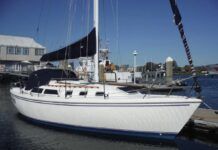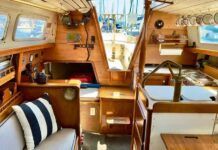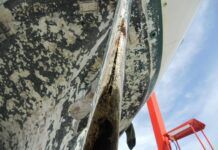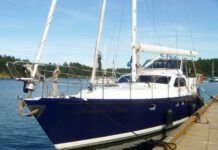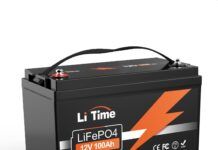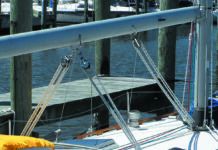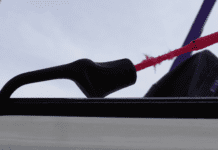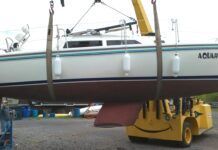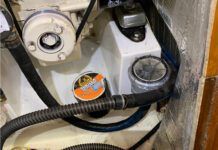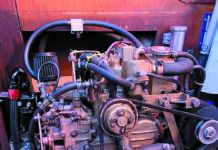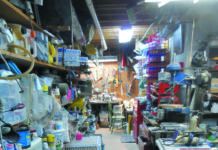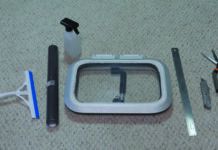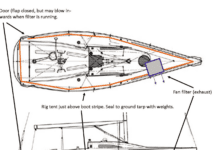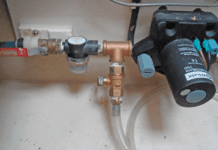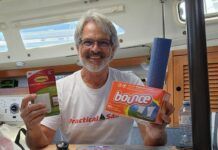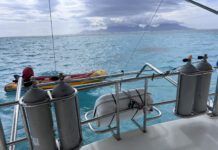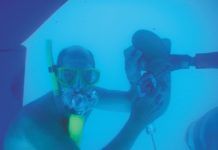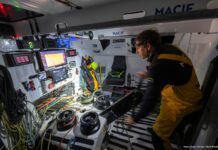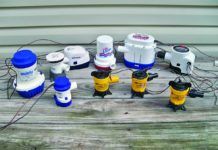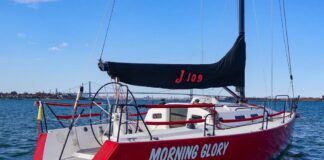Illustration by Regina Gallant
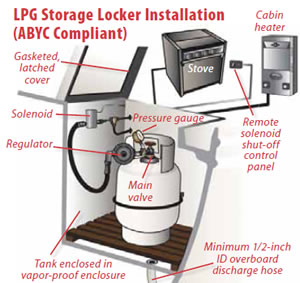
While docked at a municipal marina last year, I detected a strong propane odor. I immediately informed the harbormaster, and we agreed that calling the local fire department would be prudent. The fire department arrived in short order, went below, and confirmed the propane odor. Their only suggestion was to open all the hatches and ports to air out the boat and wait.
All ended well-no explosion or injuries, and Im here to tell of it-but I wonder if boat owners with propane systems should have a bilge blower with a flexible hose to suck air/propane out of low or confined spaces in the event of a leak? What are the recommended actions if an LPG leak is suspected?
George Wall
Irena, schooner
Newport, R.I.
Ideally, you shouldnt have to rely on your nose (or the harbormasters) to know whether you have a propane leak. We highly recommend making sure your onboard LPG system meets the safety standards recommended by the American Boat and Yacht Council (ABYC) and that it includes a pressure gauge, solenoid and regulator, and an LPG sniffer. Having these safety necessities helps minimize the risk of a gas leak, and with a sniffer, youll know about any leaks long before they become hazardous. Sniffers-installed at a low point where the heavier-than-air gas is most likely to accumulate-continually monitor the air for LPG; if any is detected, the device activates an alarm and shuts off the solenoid, which in turn turns off gas flow to appliances. This occurs at about 10 percent of the minimum explosive level.
If you do suspect an LPG leak onboard, you should first turn the propane off at the tank using the manual valve. Do not turn on any electrical or electronic gear, breakers, or switches. Kill power to all electronic/electrical devices using the main battery switch (or switches). Next, open everything up: hatches, portholes, bilge access panels, etc. And, if possible, leave the boat to allow it to air out for a while. If youre at sea and unable to evacuate, you should at least get to a high point on deck while the bilge and cabin air out; have a fire extinguisher at the ready. If youre at a dock or mooring, alert neighbors, the marina manager/dockmaster, and the fire department as a precautionary measure.
Also, as you noted, having an engine-room exhaust blower installed in the bilge would be a good idea as it will greatly speed up the evacuation of any leaked gas. The blower should be ignition-protected (to avoid sparks) and should meet ABYC standards for blowers aboard gasoline-powered boats.
The best protocol here is prevention. Inspect your LPG system regularly and frequently for leaks (weekly checks are a good idea). For installation and inspection details, check out Some Propane Dos and Donts in the March 2014 issue online.
We will be testing the various components of an LPG system-solenoids, regulators, sniffers, storage lockers-and reporting on them in upcoming issues. Stay tuned.



